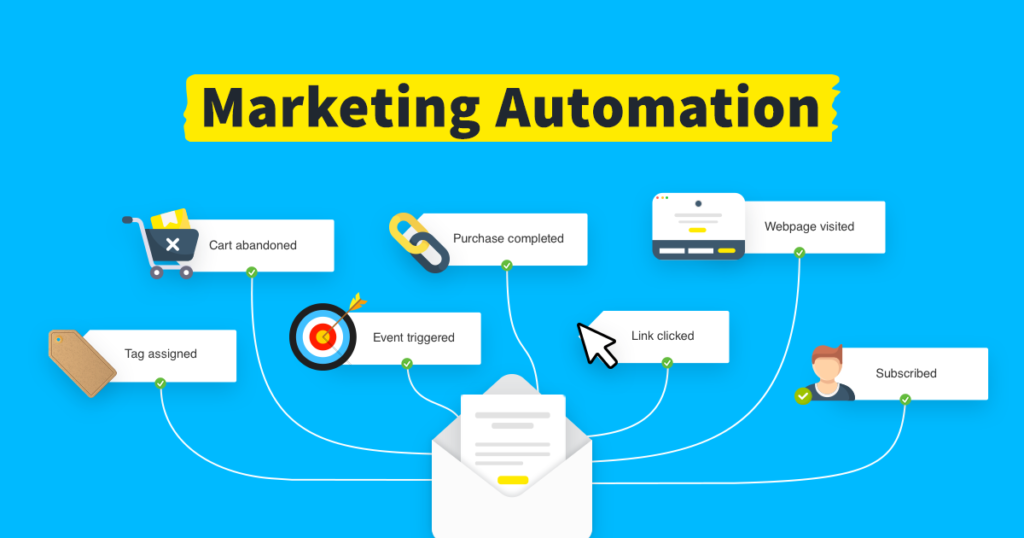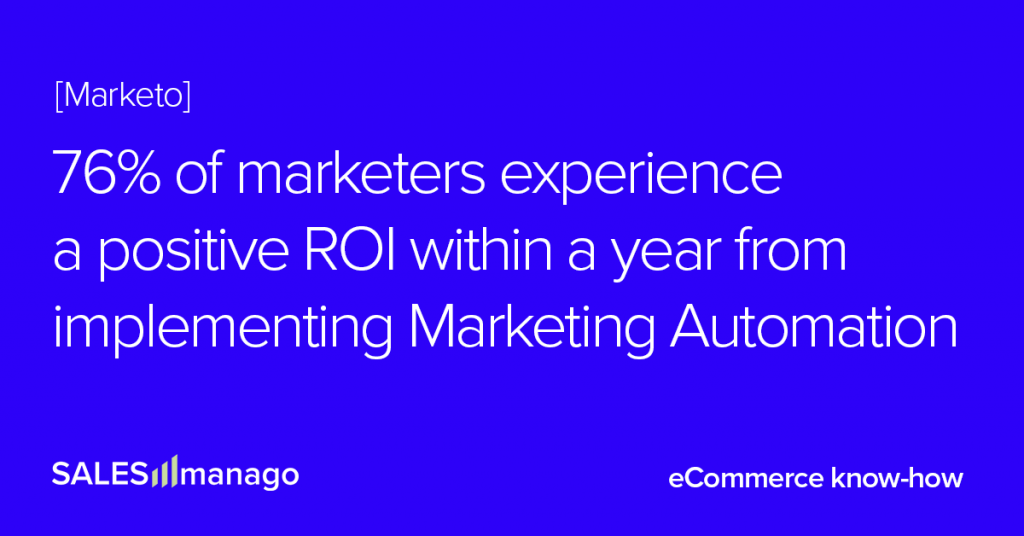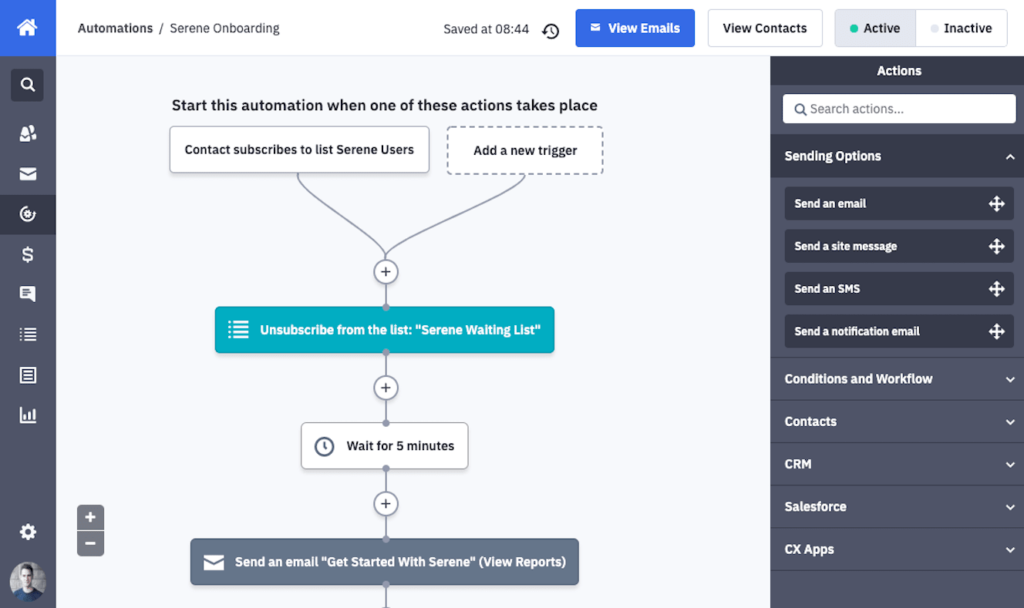8 Tips to Choose an Ecommerce Marketing Automation Platform

Table of Contents
- What Is a Marketing Automation Platform?
- Why Do You Need a Marketing Automation Platform?
- How to Choose the Best Marketing Automation Software for Your Business
- Key Takeaways
- Conclusion
- FAQs
Are you ready to start automating your ecommerce marketing? You will need to choose from more than 7,000 marketing automation platforms. But how can you determine which one is best for your company in this cluttered technology market?
The answer isn’t all that simple. Every ecommerce marketing automation platform has its pros and cons, and a unique set of features. For example, the platform suitable for your direct competitor might not be the best choice for you, because your business might have different needs.
In this blog, we will give you a complete checklist to guide your process of choosing the best marketing automation platform for your business. However, before we get to the checklist, let’s deepen our understanding of what a marketing automation platform is and why you need it.

What Is a Marketing Automation Platform?
A marketing automation platform enables you to automate your marketing and sales activities to produce more leads, close more transactions, and assess marketing effectiveness more accurately.

Marketing departments may automate monotonous processes like email marketing, social media posting, and even ad campaigns, not just to increase efficiency, but also to give their customers a more personalized experience. Marketing automation software uses technology to make these processes faster and easier. It helps streamline a brand’s marketing activities, and even helps smoothen out the creases in workflows.
In ecommerce, especially, marketing automation serves several purposes. Some of them include measuring digital engagement, nurturing leads, and establishing clear links between the marketing and sales pipelines. Ecommerce marketing automation platforms help increase engagement with the audience in a cost-effective and time-efficient manner.
By not having to craft every piece of marketing communication from scratch, you can focus on other key areas of your ecommerce business. Marketing automation platforms not only streamline workflows, but they also help engage a huge pool of potential customers at once.
Why Do You Need a Marketing Automation Platform?
To begin with, marketing automation is extremely effective. As per Nucleus Research, marketing automation results in a 14.5% increase in sales productivity and a 12.2% reduction in marketing costs overall.
When you dig further into the statistics, you’ll find even more compelling figures for small businesses. As per the Annuitas Group, firms that use marketing automation to nurture prospects generate 451% more qualified leads. Those fostered leads make 47% larger purchases than their non-nurtured counterparts.
Here are a few benefits of using a marketing automation platform.
- It helps you save precious time by automating time-consuming tasks.
- It reduces overhead costs and additional staff.
- It helps increase revenue through proper lead management and customer interaction.
- It enables better communication among different teams.

In brief, marketing automation can prove to be a big boon for your ecommerce business. All you need to do is choose the right platform.
How to Choose the Best Marketing Automation Software for Your Business
Now that you understand the importance of marketing automation, let’s look at how to choose the best marketing automation platform.
1. Be aware of integrations
Your marketing automation system shouldn’t work in isolation. Therefore, it’s crucial to analyze the integration landscape of each platform. Native customer relationship management (CRM) integration possibilities are the most important feature here, as linking your marketing automation software with your CRM system is a requirement. Beyond that, you should look at other integration options, such as those for social network marketing solutions, account-based marketing tools, and so on.
Look at not only what integration opportunities exist, but also how those integrations work (e.g., what does it mean to have your social media management platform coupled with your marketing automation platform?) as part of these analyses.
2. Pick a platform with an easy user interface
Next, consider how easy or difficult the user interface of the automation platform is. Many, if not all, platforms may claim to have a user-friendly interface, but this isn’t necessarily the case. In order to understand the nitty-gritty of the user interface, request a demo. When evaluating each platform, consider the following questions.

- Is it easy to navigate? Try sending an email or looking at your statistics to see if these easy activities are tough.
- Is there any helpful information or easy support team access? Some platforms will display contextual information or when you hover over the title.
- Have you ever had to jump through several hoops in order to finish a basic task? If this is the case, it may impede your productivity.
3. Carefully check each feature
Marketing automation platforms come with a variety of tools and features. As a result, you must select a platform that offers the features you require. Typically, corporate giants require all types of automation help in order to maintain their stable operations. Smaller businesses, on the other hand, may have fewer automation requirements.
Marketing automation platforms are divided into three categories: channel-specific, middle- or bottom-funnel, and full-funnel.
The first one allows you to automate some tasks, such as writing and sending emails. The second category is effective in terms of gathering leads and, as a result, distributing marketing messages. The third category comprises content development, SEO tactics, and other forms of client involvement, with the goal of generating interest and demand, and therefore paving the way for sales. Choose one that suits your needs best.
4. Ensure it has support options
Customer service is the most important part of a marketing automation platform, yet it’s also the most underestimated one. Every automation platform provides some level of customer service. Choose the highest level of customer service, which is available 24 hours a day and seven days a week, and allows you to communicate with specialists via phone, email, or live chat to have your issues fixed fast.
5. Check the user base and client reviews
Although the best automation platform for your business will be determined by your business’ unique demands and objectives, you’ll want to see how other users are making the most of the tool. Read through case studies or watch video testimonials from real customers who have used the technology and can speak about it.
6. Be aware of the cost involved
Marketing automation software has a cost, which includes a setup fee, on-site team training fees, monthly usage fees (more users equal greater monthly fees). In some circumstances, marketing automation service providers may also charge more if the quantity of leads generated is large.
Therefore, it is dependent on the service you select and from whom you obtain it. Plan what you’ll need for automation, set a budget, and then choose the automation marketing platform that best meets your needs and fits your budget.
7. Ensure the setup is seamless
There’s little doubt you’ll need some help getting started with your new marketing automation software once you’ve purchased it. However, the level of assistance provided varies from platform to platform. When learning about a platform’s setup and onboarding process, consider the following questions.
- Is there a setup and onboarding price, and if so, what is it and how much does it cost? Some platforms impose a one-time setup cost that can cost thousands of bucks.
- Is the process carried out virtually or in person?
- Are you in the process of switching from one system to another? If this is the case, additional assistance may be required to ensure that all contact information is transmitted correctly.
8. Look for comprehensive security features
Last but not least, you should make sure that the marketing automation solution is audited by an auditor for its information security management systems. It should also be typically issued an ISO 27001 accreditation, ensuring that client data is secure and not vulnerable to breaches, fraud, or theft. Check if the marketing automation software you choose has security controls and risk management policies in place.
These are all the factors you need to take care of when choosing a marketing automation platform for your business.
Key Takeaways
- A marketing automation platform enables you to automate your marketing and sales activities to produce more leads, close more transactions, and assess marketing effectiveness more accurately.
- Marketing automation can help you save time, reduce costs, increase revenue, and create better relationships with customers.
- When choosing a marketing automation platform, look at how simple the user interface is and the integrations the software offers.
- You must also consider its features and support options. It is important to have a good, responsive support team.
- Go through client testimonials and case studies of the automation platform you choose.
- The marketing automation platform comes at a cost, so make sure you consider pricing as a factor.
- Finally, you must look at the setup and onboarding process, as well as the security certifications, of the platform.
Conclusion
An ecommerce marketing automation platform can help you make a big difference in your marketing efforts. But it is important that you choose the right one. We understand that the decision can take some time and effort, but the right platform will be worth it.
FAQs
A marketing automation platform enables you to automate your marketing and sales activities to produce more leads, close more transactions, and assess marketing effectiveness more accurately.
Here are a few benefits of using a marketing automation platform.
It helps you save precious time by automating time-consuming tasks.
It reduces overhead costs and additional staff.
It helps increase revenue through proper lead management and customer interaction.
It enables better communication among different teams.
Automated marketing emails are an example of marketing automation. Similarly, social media posting and scheduling are other examples. Another great marketing automation example is sending out surveys to get input on products, services, and updates. Typically, these are sent out in response to events, such as purchases or programs, sites, or product upgrades.
There are many marketing automation tools you can choose from, depending on your needs and budget. Marketo, HubSpot, Userfox, and Eloqua are some of them.
Here is a checklist of factors you need to consider.
Integrations
User interface
Features
Support options
Client reviews
Setup and onboarding
Cost
Latest Blogs
Learn how to rank on AI search engines like ChatGPT, Perplexity, and Gemini by optimizing your content for authority, structure, and relevance. Stay ahead in AI-driven search with this strategic guide.
Explore the best healthcare SEO services for your medical practice. Improve online visibility and effectively reach more patients in need of your services.
Discover top social media agencies specializing in banking solutions, enhancing financial services and driving engagement.
Get your hands on the latest news!
Similar Posts

B2C Marketing
5 mins read
Top Choices for Best Content Marketing Services in B2B Industries

Artificial Intelligence
5 mins read
How A Lead Generation Specialist Can Use AI-Powered Content Funnels to Drive Conversions

Artificial Intelligence
4 mins read